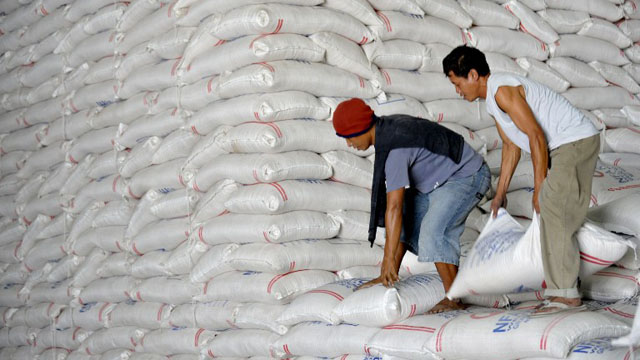SUMMARY
This is AI generated summarization, which may have errors. For context, always refer to the full article.
 Politically, the answer is simple.
Politically, the answer is simple.
All Philippine governments have declared as policy that the country should be self-sufficient in rice, the staple of its nearly 100 million people.
The reality is that it may make better sense to just import the shortfall in rice and admit that as things stand, the Philippines can never achieve self-sufficiency in the grain.
The Philippines plants about 4.66 million hectares to rice. Just for perspective, Vietnam plants over 7 million and Thailand sows more than 10 million hectares to the staple.
To boost output, the Philippine government is spending anywhere from 40% to 60% of the Agriculture Department budget on irrigation and infrastructure in mainly rice-growing areas.
GMO rice is being tapped along with increased use of fertilizers.
After all that, it may still not be enough for the Philippines to become self-sufficient in rice.
Demand for milled rice is running about 2 million metric tons ahead of production. The population is also increasing too rapidly for the country’s farmers to keep pace.

There is another compelling reason why self-sufficiency in rice may not, in the end, be good policy.
Rice needs a lot of water and nitrogen-based fertilizers to raise production. The fertilizer-laden runoff from rice farms will contaminate ground water and fishing grounds, leading to runaway algae blooms which will kill fish. Red tide is already becoming a critical problem in many areas of the archipelagic country.
“Pollution from fertilizers occurs when these are applied more heavily than crops can absorb or when they are washed or blown off the soil surface before they can be incorporated,” a report by the U.N.’s Food and Agriculture Organization entitled “World Agriculture: Towards 2015-2030” said.
“Excess nitrogen and phosphates can leach into ground-water or run off into waterways. This nutrient overload causes eutrophication of lakes, reservoirs and ponds, leading to an explosion of algae which suppress other aquatic plants and animals,” the FAO report added.
In plain speak, the viability of farms and fisheries in the Philippines are in real danger from excessive use of fertilizers to boost rice production to meet a goal that only makes sense politically.
The Philippines can increase rice production in the short-term, but farms and fisheries may suffer irreparable damage from fertilizer abuse.
Switching crops or getting Filipino farmers to reduce their use of fertilizer would require a determined government thinking of long-term consequences for the country.
Regrettably, the government of President Benigno Aquino is making decisions on agriculture which will only cover a few months. A longer-term horizon is seemingly not uppermost in their minds at this time.
I can understand the impulses driving the Philippine government to go for self-sufficiency in rice. But there are now compelling environmental and economic considerations which should be considered as arguing against becoming self-sufficient in a crop when less costly alternatives are available.
After all, all of the flour used to make the breakfast staple pan de sal consumed in the Philippines comes from imported wheat.
Rice should be no different. – Rappler.com
Note: Rene Pastor is with Philippine Commodities Digest, a weekly publication of New Jersey-based A & V Media that provides a comprehensive roundup of developments and trends in the country’s key farming and mining sectors. He is a freelance journalist who worked with the news agency Reuters for nearly 23 years. He graduated with a Masters degree in International Affairs from the New School in New York city and received a bachelor of arts in Communications from the Ateneo de Manila University. Rene is also a lecturer at Middlesex County College in Edison, New Jersey.
Add a comment
How does this make you feel?
There are no comments yet. Add your comment to start the conversation.